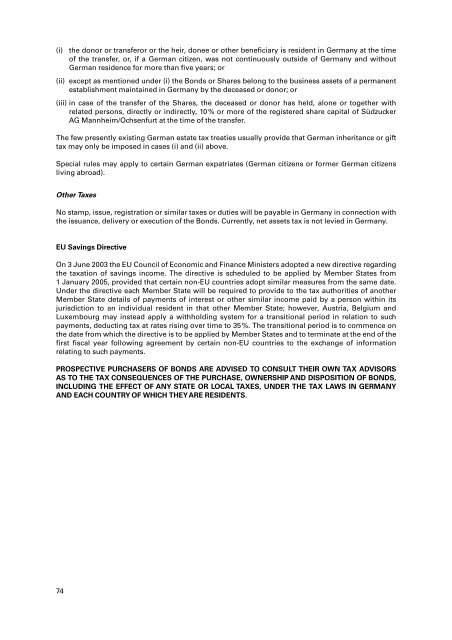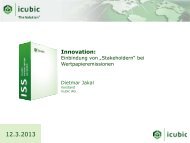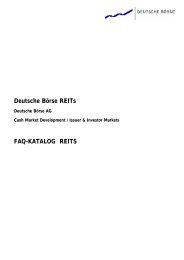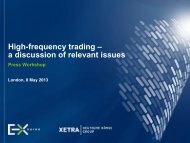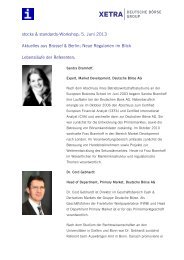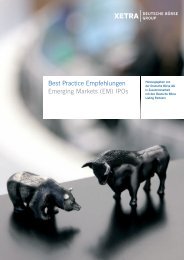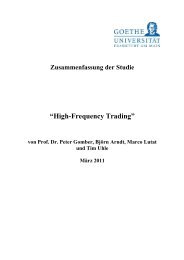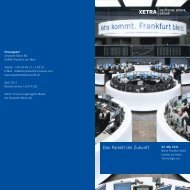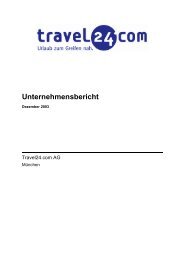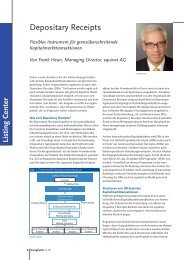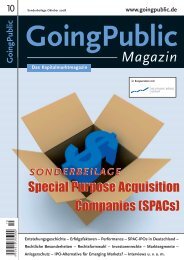Südzucker International Finance B. V. Südzucker AG ... - Xetra
Südzucker International Finance B. V. Südzucker AG ... - Xetra
Südzucker International Finance B. V. Südzucker AG ... - Xetra
Create successful ePaper yourself
Turn your PDF publications into a flip-book with our unique Google optimized e-Paper software.
(i)the donor or transferor or the heir, donee or other beneficiary is resident in Germany at the timeof the transfer, or, if a German citizen, was not continuously outside of Germany and withoutGerman residence for more than five years; or(ii) except as mentioned under (i) the Bonds or Shares belong to the business assets of a permanentestablishment maintained in Germany by the deceased or donor; or(iii) in case of the transfer of the Shares, the deceased or donor has held, alone or together withrelated persons, directly or indirectly, 10% or more of the registered share capital of <strong>Südzucker</strong><strong>AG</strong> Mannheim/Ochsenfurt at the time of the transfer.The few presently existing German estate tax treaties usually provide that German inheritance or gifttax may only be imposed in cases (i) and (ii) above.Special rules may apply to certain German expatriates (German citizens or former German citizensliving abroad).Other TaxesNo stamp, issue, registration or similar taxes or duties will be payable in Germany in connection withthe issuance, delivery or execution of the Bonds. Currently, net assets tax is not levied in Germany.EU Savings DirectiveOn 3 June 2003 the EU Council of Economic and <strong>Finance</strong> Ministers adopted a new directive regardingthe taxation of savings income. The directive is scheduled to be applied by Member States from1 January 2005, provided that certain non-EU countries adopt similar measures from the same date.Under the directive each Member State will be required to provide to the tax authorities of anotherMember State details of payments of interest or other similar income paid by a person within itsjurisdiction to an individual resident in that other Member State; however, Austria, Belgium andLuxembourg may instead apply a withholding system for a transitional period in relation to suchpayments, deducting tax at rates rising over time to 35%. The transitional period is to commence onthe date from which the directive is to be applied by Member States and to terminate at the end of thefirst fiscal year following agreement by certain non-EU countries to the exchange of informationrelating to such payments.PROSPECTIVE PURCHASERS OF BONDS ARE ADVISED TO CONSULT THEIR OWN TAX ADVISORSAS TO THE TAX CONSEQUENCES OF THE PURCHASE, OWNERSHIP AND DISPOSITION OF BONDS,INCLUDING THE EFFECT OF ANY STATE OR LOCAL TAXES, UNDER THE TAX LAWS IN GERMANYAND EACH COUNTRY OF WHICH THEYARE RESIDENTS.74


